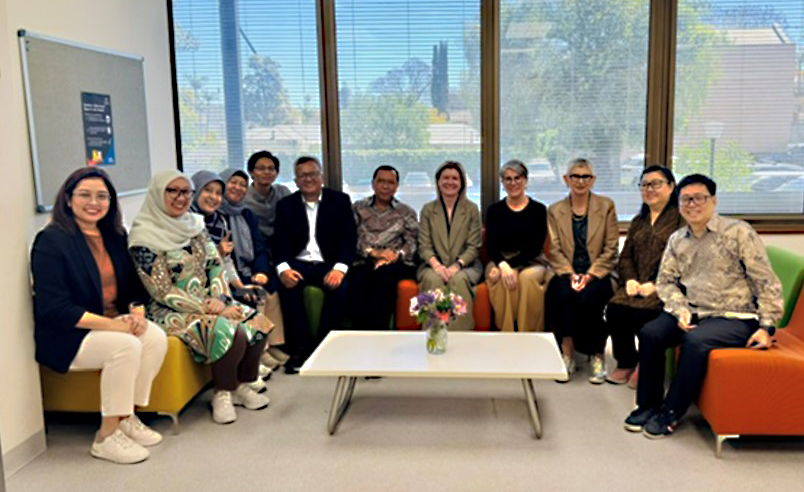We’re pleased to share an update on the success achieved by Professor Deborah Turnbull of The University of Adelaide School of Psychology, in her work fostering collaboration between the APS and Asosiasi Penyelenggara Pendidikan Tinggi Psikologi Indonesia (AP2TPI) to build scientific psychology in Indonesia.
The project
Awarded in 2023, the grant enabled Professor Turnbull to initiate dialogue and collaborations between Australian psychology entities with Asosiasi Penyelenggara Pendidikan Tinggi Psikologi Indonesia (AP2TPI), the peak body for higher education psychology in Indonesia, which has a membership of 125 universities throughout the archipelago.
The catalyst for the grant was the co-design, implementation and evaluation of a Collaborative Online International Learning (COIL) framework for intercultural educational experience.
The original APS funding motivated a wider arrangement, which included a Global Partnership Seed Funding Program Grant from the Division of External Engagement, University of Adelaide, Indonesian universities and AP2TPI.
This allowed a broader delegation of 16 senior psychology academics and practitioners from six public and two private universities from throughout Indonesia to visit over five days in October 2024.

Image: Meeting between Indonesian delegation, JBI and The University of Adelaide
Outcomes
The core outcome of the APS grant was the successful trial of the COIL framework. Implemented across 12 weeks, learning outcomes included the development of interpersonal skills and psychology knowledge related to reflexivity and cultural humility, encouraging students to consider a broad range of future career pathways in psychology and psychology-related sectors.
Twelve Australian-based first-year students and six Indonesian second and third-year students from Udayana and Brawijawa universities undertook the interactive online course. Focus groups at the conclusion of the course showed that students enjoyed the opportunity to interact and appreciated the opportunity to demonstrate skills, such as those for interviewing. They also made suggestions for other universities to consider undertaking COIL initiatives in the future.
The inclusion of the broader delegation enabled two additional outcomes which aim to motivate sustained relationships between Australian psychology entities and AP2TPI:
- Roundtable and online discussions about regulation and accreditation in Australia by the Australian Psychology Accreditation Council (APAC).
- A plan to conduct a two-day Indonesia-based workshop for AP2TPI members with the objective of building knowledge for identifying and responding to gaps in evidence-based psychology practice.
Policymakers, researchers and service providers will now be invited to identify priority areas for evidence synthesis, in collaboration with JBI , an internationally recognised research organisation focused globally on research and training to promote evidence-based decisions.
Apply for the next intercultural grant
If you have a project that is consistent with the APS’s vision and is related to:
- addressing scientific and/or professional issues that have intercultural significance for psychology, psychologists and community groups
- providing further education and training opportunities for psychologists in the target community, or
- fostering collaborations between the APS and psychologists in the target community who are seeking support to establish and build scientific and professional psychology, or who are undertaking a psychologically significant humanitarian project within their own country or region.
The grant can be used to support any aspect of a successful and sustainable project, including travel, living allowance, training fees and charges, books and equipment, or other costs associated with the project. The closing date for the next round of grant applications is 1 September 2025.
Find out more